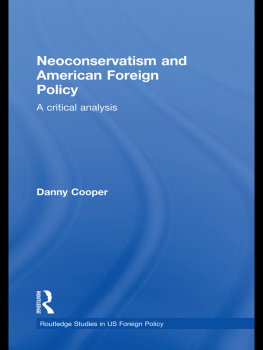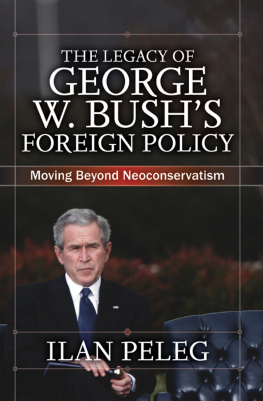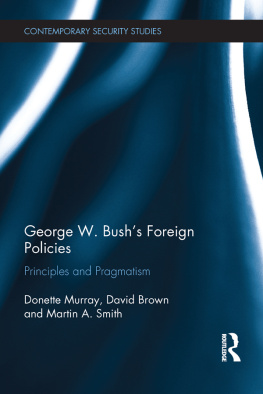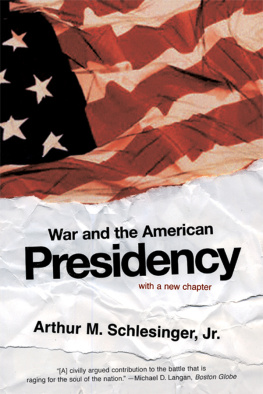Acknowledgments
I started working on this book when the neoconservatives were at the zenith of their influence. Like the Iraq war, the movement has taken a somewhat different turn than I had anticipated. I would like to record my gratitude to various colleagues and friends who served as highly valued sounding boards.
Early on, over sumptuous lunches, Chris Buckley provided puckish wisdom and voiced doubts about the direction of the Iraq war and the GOP that proved to be quite prescient. William F. Buckley Jr. kindly devoted several hours to musing about the early years of the conservative movement with me. Norman Podhoretz and Midge Decter submitted patiently to my queries. I also profited from discussions with Kenneth Adelman. Douglas J. Feith and Peter Rodman were most generous with their time, even while serving in the Defense Department. Walter Berns, Mark Blitz, and Kenneth Weinstein illuminated aspects of Straussian thinking. Jeane Kirkpatrick, whom I first came to know at Georgetown University years ago, spent a long afternoon with me discussing Strauss, Syria, and various other topics. John Bolton of the American Enterprise Institute was affable, witty, and direct in discussing his career. Gary Rosen of Commentary offered astute remarks about the state of the conservative movement. So did the National Interests Nicholas Gvosdev.Kukula Glastris of the Washington Monthly provided both scorching assessments and irreverent asides. Joan Wohlstetter generously corrected my misapprehensions about her father and provided me with some of his writings.
A media fellowship at the Hoover Institution allowed me to consult its archives as well as meet a number of its permanent fellows. In this regard, I must single out Peter Berkowitz, a most discerning neocon, for special thanks. At the Weekly Standard, William Kristol offered valuable insights. Melvin J. Lasky was his inimitable self on the phone from Berlin, and I fondly recall visiting him in his lovely apartment in the Mommsenstrasse, where he offered me a cocktail at eleven a.m. Daniel Bell tried to guide me through some of the thickets of the early years of the New York intelligenty.
Steven C. Clemons and Michael Lind of the New American Foundation helped me formulate my thoughts about the persistence of the neocon movement. Jonathan Rauch prodded me relentlessly forward. Over several dinners, John Judis and Walter Laqueur offered very different perspectives on the neocons. Lawrence F. Kaplan's keen observations and second thoughts have left a deep impression on me. I would also be remiss if I did not thank Doyle McManus of the Los Angeles Times and James Mann for their encouraging words.
I owe a great debt to my editors at Doubleday, particularly Adam Bellow, who not only displayed saintly patience but also provided expert guidance.
I would also like to thank my parents for their great assistance over the years. In addition, John and Gina Despres provided indispensable support. Perhaps my greatest debt is to my wife, Sarah Despres, and our son, Oscar, whose political predilections remain undetermined. Needless to say, any errors are mine alone.

THEY KNEW THEY WERE
RIGHT
JACOB HEILBRUNN
Jacob Heilbrunn is a senior editor at the National Interest. He is a former editorial writer for the Los Angeles Times and was a senior editor at The New Republic. He writes regularly for The New York Times and The Washington Monthly.
Exodus
And you, stand here by Me and I shall speak to you all the commands and the statutes and the laws that you will teach them, and they will do them in the land that I am about to give them to take hold of it.
Deuteronomy 5:28
It's the same with all you comfortable, insular, Anglo-Saxon anti-Communists. You hate our Cassandra cries and resent us as allies-but, when all is said, we ex-Communists are the only people on your side who know what it's all about.
Arthur Koestler, The God That Failed
I call them utopians I don't care whether utopians are Vladimir Lenin in a sealed train going to Moscow or Paul Wolfowitz. Utopians, I don't like. You're never going to bring utopia, and you're going to hurt a lot of people in the process of trying to do it.
Lawrence B. Wilkerson, chief of staff to former secretary of
state Colin Powell in GQ
In the spring of 2003, shortly after the liberation of Iraq, Irving Kristol and Gertrude Himmelfarb attended a party in Washington, D.C., for Melvin Lasky. They hadn't seen one another since a conference in Berlin in 1992 celebrating the end of the cold war. Now they were enjoying a sentimental reunion at which these eighty-year-olds reminisced about their years at the City College of New York in the 1930s. As Lasky held forth, Kristol waspishly intervened to tell the room that none of you know what the first magazine was that he had published an article in-an obscure Trotskyist publication called the Chronicle. After Kristol observed that the then-eighteen-year-old Lasky rewrote every sentence in the piece, Lasky responded, That was the last recorded moment your prose needed help.
It was a telling moment. For all the joviality, their reminiscences weren't about going out for sports or their old professors. Instead, they were about the intensely political sectarianism of the left. Decades later, the passions that had first impelled them into politics had hardly dimmed; as Lasky later recounted to me, The memories are very sharp, it's not like an old man who says, Who? What college were you in?'
Their saga began in Russia. At the turn of the twentieth century, Jews, overrepresented in left-wing and revolutionary movements, intent
So pronounced was this phenomenon that in a 1927 study titled The Jew as Radical, the Russian historian (and apologist for Stalin) Maurice Hindus maintained that Jews had an innate propensity to radicalism dating back to their biblical origins. Indeed, the Menshevik exile Simeon Strunsky, who would end up on the editorial board of the New York Times, sardonically recalled the intensity of Marxist debates that had been transported from Europe to the United States: I remember quite well those pioneer Yiddish labor papers of the 90s with their learned editorialettes of six or seven columns and five thousand words about what Werner Sombart thought of what Boehm-Bauwerk said about how Karl Marx slipped up in a footnote on page 879.
Of the avatars of world revolution, no one beckoned more alluringly to a new generation of young Jewish radicals than the Russian exile Leon Trotsky. As Jews, they were deeply influenced by their parents' flight from czarist oppression and the rise of fascism in the 1930s, but they also sought to transcend the religiosity of their elders. Some joined the American Communist Party, at least until the 1939 Molotov-Ribbentrop pact dividing up Poland and the Baltic States between the Soviet Union and Nazi Germany. A much smaller segment became Trotskyists, attacking both Stalinism as a perverted form of communism and New Deal liberalism. The Trotskyist intellectuals saw themselves as martyrs, a kind of aristocratic intelligentsia.
According to their own prolific writings, they started out purely as an intellectual response to events such as the Spanish civil war, the Moscow show trials, the Hitler-Stalin pact, and the New Deal. Frequently scanted, or even missing altogether from this tale of brilliant Another, Joshua Muravchik, maintains that hardly any neoconservatives have been interested in Trotskyism, let alone sincere believers.









